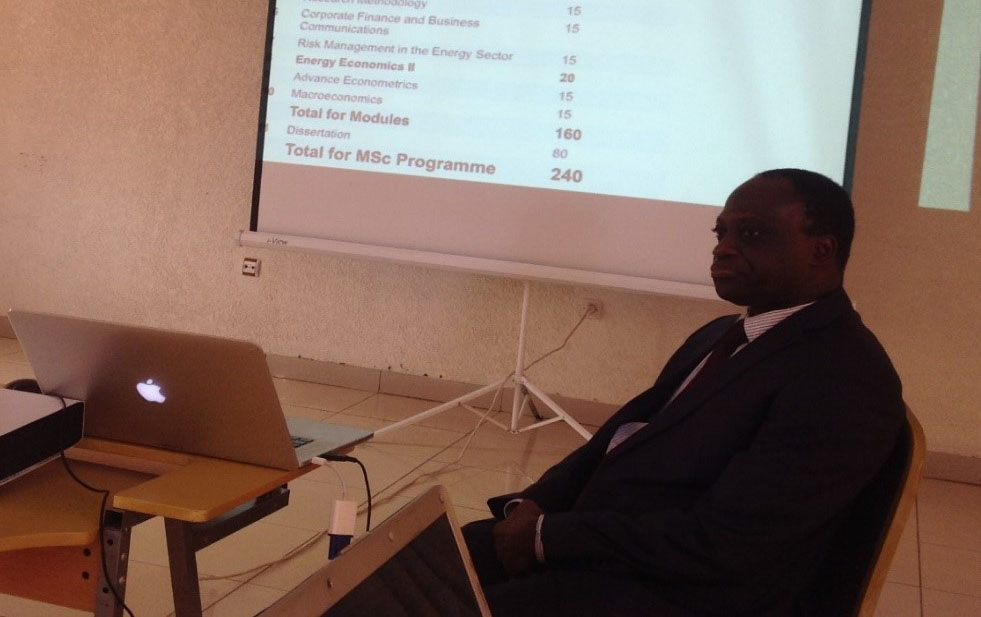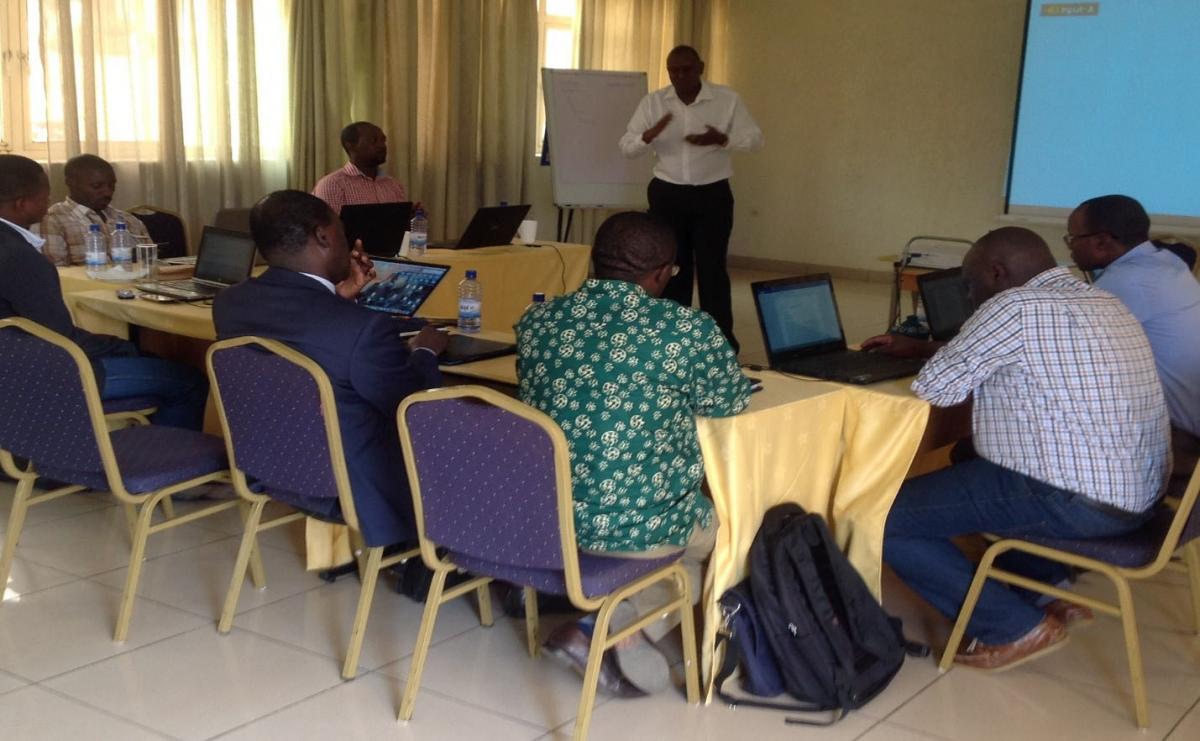the workshop for curriculum development of Masters Programmes for the centre of Energy for sustainable development. (30th July -3rd August 2017)
In effort to support and develop priority areas to make Africa economically self sustainable, World Bank through the Ministry of Finance and Economic Planning (MINECOFIN) has funded University of Rwanda (UR)-College of Science and Technology (CST) to establish an African Centre of Excellence in Energy for Sustainable Development (ACE-ESD).
It is a regional centre that is based in Rwanda and its mandate is to offer post-graduate training, organization of short professional courses and PhD in collaborative applied research in Energy for Sustainable Development.
ACE-ESD will offer Masters programs in three main specializations namely,
- Renewable energy,
- Electrical Power System
- Energy Economics.
Workshop objectives
Therefore, to fulfill this mandate the centre organized a 5 days workshop bringing together lecturers from University of Rwanda College of Science and Technology who are skilled and knowledgeable in these domains and stakeholder experts from Rwanda Utilities Regulatory Agency (RURA) in order to develop teaching modules for the three master’s level specializations as mentioned but most importantly RURA participated in the development of Master programmes in Energy Economics, though they also gave input on the development of other curricula ie Electrical Power system and Renewable Energy.
- Workshop’s activities.
At first the workshop was supposed to start on 24th to 29th July 2017 but due to unavoidable reasons related to preparations it was shifted to the future dates 29th July to 3rd August 2017.
The workshop team arrived in Musanze on Saturday evening 29th July 2017 and the workshop started on Sunday 30th July 2017 at 8:00am.
On the first day of the workshop Centre Director Prof. Ntagwirumugara Etienne explained to the participants much information about the centre goals of the centre so that all get common understanding in working as a team for the benefits of the center.
He explained that for all master programmes there must be common courses related to energy. An example was taken from Colorado University which has masters in Mechanical Engineering.
On Tuesday 1st August experts from RURA presented the programmes developed for Master in Energy Economics and also contributed to the contents of other master specializations in renewable energy and Electrical power systems.
Eng. Alfred who is the head of engineering department in RURA first highlighted the importance of Masters in energy economics not only in Rwanda but also in the region and the Africa at large as a continent. He said that since energy is a key to development then its production and distribution should also be looked using econometric and cost analysis to avoid loss but make profits in both production and distribution.
Dr. Williams a staff and an expert in Energy Economics said that they have done all 'requirements which will help in all long journey of making our programmes success.
RURA has interest in academia since its a regulator and its roles are crosscutting in all services being rendered to the public.
RURA comes in support of capacity building for better services therefore RURA has patterned with university of Rwanda mostly in energy economics and other post graduate studies.
He mentioned that they have already finished energy economics programmes with the centre that are now in the hands of the university senate to deliberate thereafter it will be submitted to HEC for the approval.
Dr. William‘s presentation underscored the importance of courses units in the masters energy economics like cooperate finance, entrepreneurship and Business communication which will help students understand market trend and tariff policies in the field of energy.

He further suggested that studying by the blocking model will increase partnership and will reduce on the cost of capacity building since the center will keep continuous increase of students periodically.
The centre will also give a chance to students who are not engineers but will have chance to enroll.
The way our modules re built give a priority the field of energy so that each student gets the concept and basics of Energy as cross cutting.
The programme will admit students from both English and French speaking countries and as experience has shown people can easily adapt.

- Workshop’s outcomes
Workshop participants were able to develop teaching modules of all three master programmes in
- Electrical Power System
- Energy Economics.
- Renewable energy,
Staff from RURA were also introduced into modules that developed and suggested some input in naming the courses they also pledged any other possible technical support in module development that center may need.
During this workshop participants also suggested that since there some other programmes in undergraduate level need to be development in the department of engineering an appropriate time will also be allocated to for development of these curricula.

